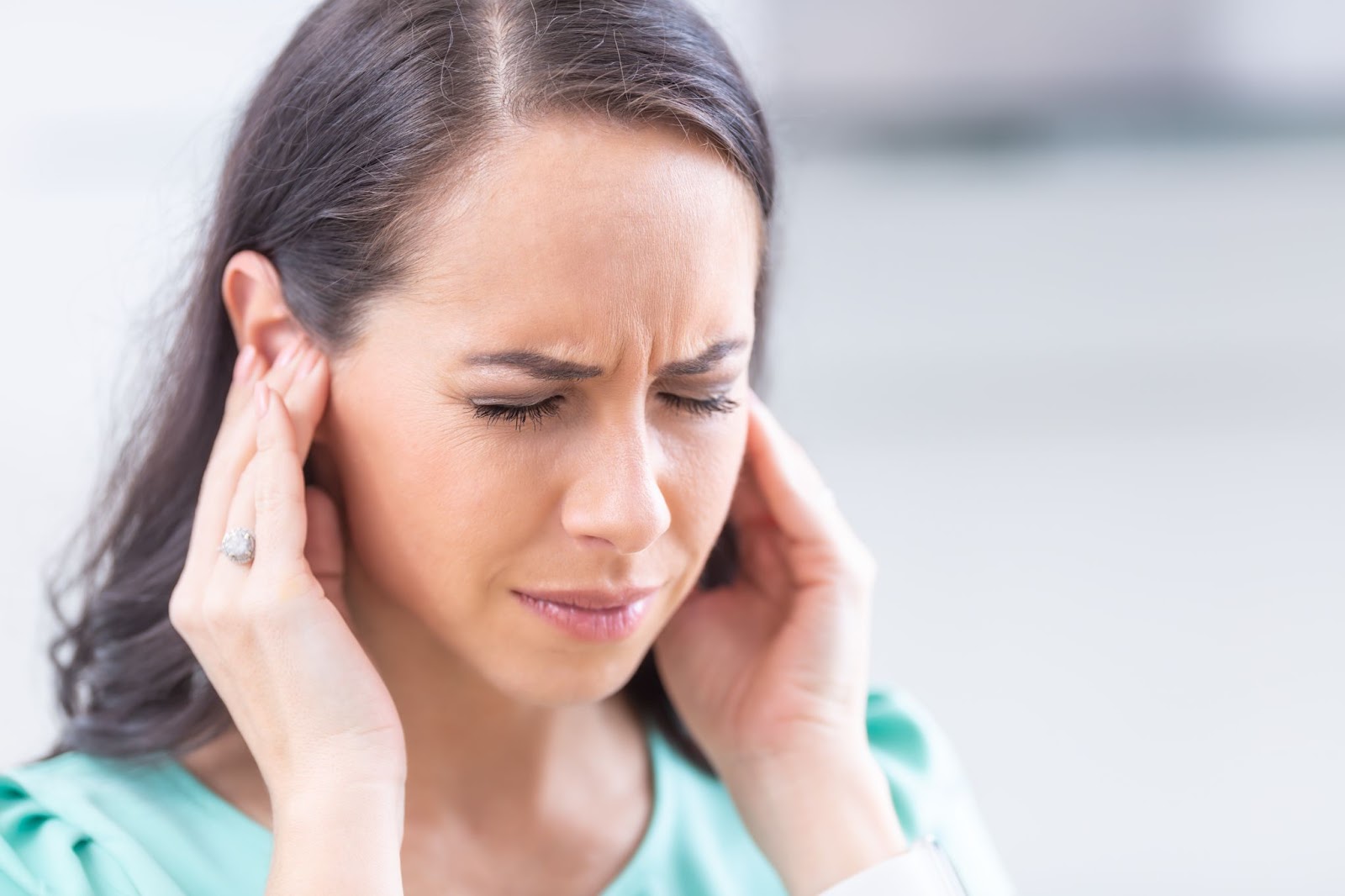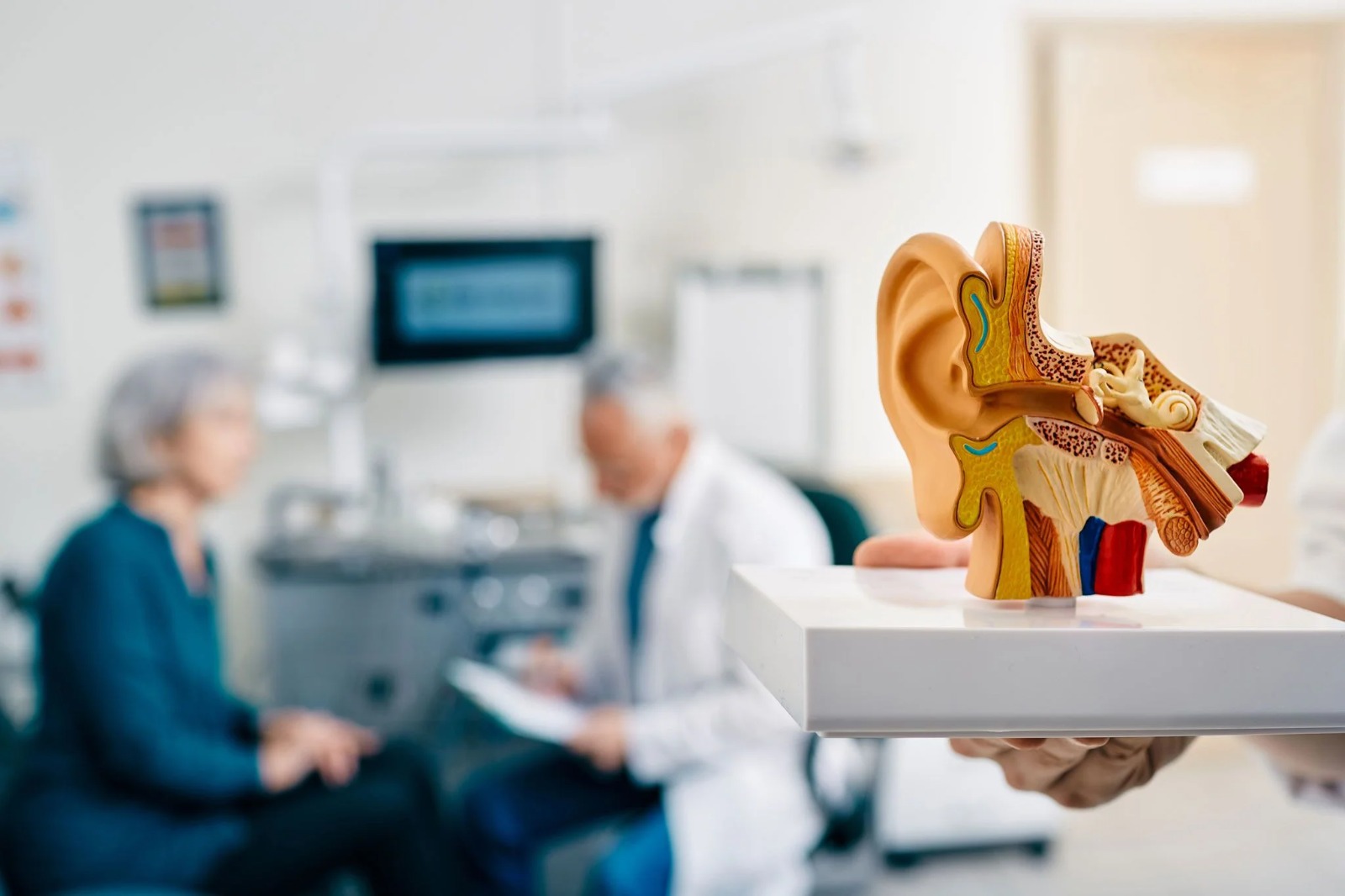Tinnitus is the perception of sound without any external source, often described as “ringing in the ears.” People with tinnitus may also hear buzzing, hissing, whistling, or roaring noises, with varying intensity and duration. These sounds can be continuous or intermittent and may affect one or both ears, or seem to originate from within the head. While tinnitus can be a mild annoyance for some, it can significantly disrupt daily life, sleep, and concentration for others.
Experiencing tinnitus occasionally is normal, but if it persists for several days, it is essential to consult a doctor. Around 10% of people experience tinnitus regularly, and 1% to 2% find it particularly bothersome or distressing.

Tinnitus is a symptom, not a condition, often linked to changes in the auditory system. It is commonly caused by exposure to loud noises, such as at concerts, workplaces, or through personal music devices, which can damage the cochlea’s hair cells. Other causes include ear infections, earwax buildup, head or neck injuries, and ototoxic medications, which are harmful to the ear. Stress and emotional strain can also trigger or worsen tinnitus symptoms.
Hearing loss is closely associated with tinnitus, with over 90% of cases stemming from some form of hearing anomaly. As hearing deteriorates, the brain tries to compensate by amplifying internal sounds, leading to the perception of tinnitus. Around 80% of individuals with severe hearing loss experience tinnitus. Medical conditions like hypertension, diabetes, and Covid-19, along with medications such as chemotherapy and blood pressure tablets, can also worsen tinnitus.

There is no definitive cure for most tinnitus cases, but sound therapy, CBT, relaxation, and lifestyle changes can improve quality of life, helping individuals adapt and manage symptoms effectively over time.
Musical hallucination, or musical tinnitus, involves hearing music without an external source. It’s common in older individuals with hearing loss and can be managed like other tinnitus types, without concerns.
Hearing aids are beneficial for those with hearing loss and tinnitus, amplifying external sounds to reduce tinnitus prominence. Some include built-in sound therapy. Proper fitting, consistent use, and audiologist guidance are essential.
Tinnitus can be linked to temporo-mandibular joint (TMJ) issues, such as arthritis or misalignment, affecting ear-connected muscles. Treating TMJ problems with physiotherapy or other methods may help tinnitus symptoms.
90% experience a reduction in their tinnitus during their first appointment! With clinics in Dublin, Drogheda, Dundalk and Kingscourt.